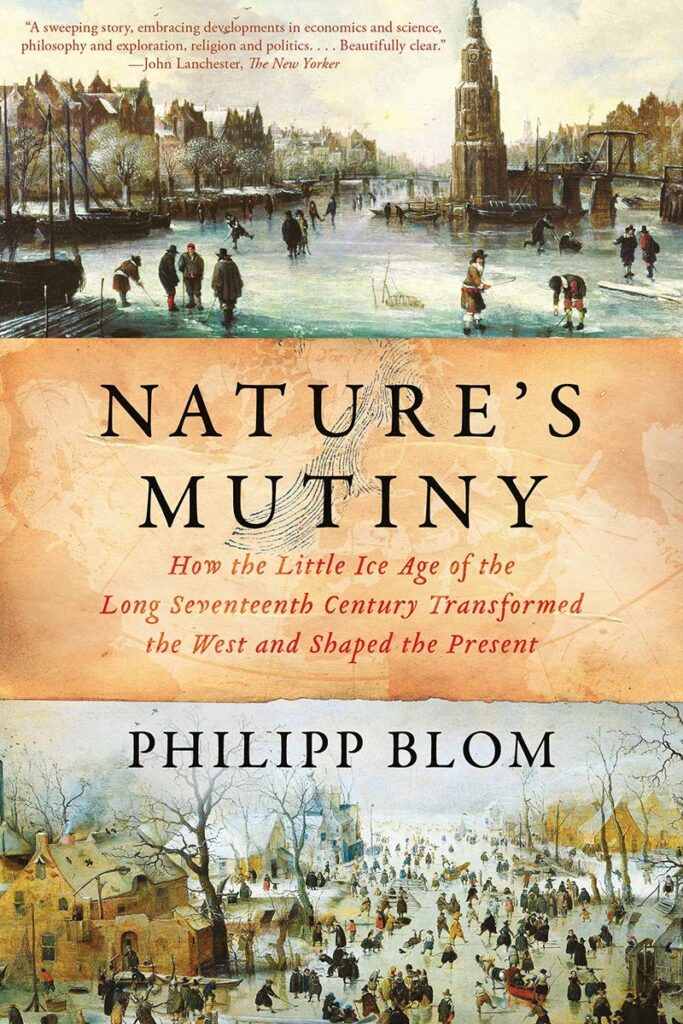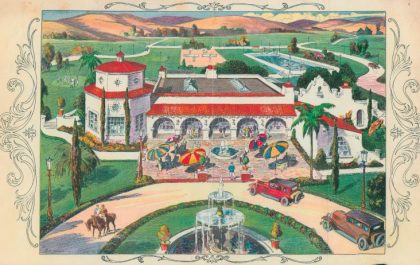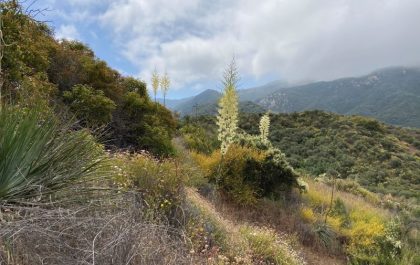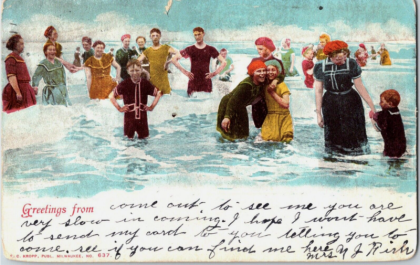
In Nature’s Mutiny: How the Little Ice Age of the Long Seventeenth Century Transformed the West and Shaped the Present (2017), best-selling historian Philipp Blom documents the effects of climate change on the development of Western civilization.
As recently as the 1980s, historians and scientists debated the degree to which climatic shifts have influenced human societies. This debate is largely over. Our knowledge of the earth’s climate history (paleoclimatology) has been dramatically enhanced over the past few decades.
Climate historians have developed year-by-year data with tree-ring studies; offering accurate accounts of seasonal rainfall and temperature measurements for the past 2000 years. Other avenues of information include the analysis of polar ice cores, coral growth, cave stalagmites, plant residue, and ice cap moss growth. Other techniques include radiocarbon dating, freshwater lake boring, and studying deposits of volcanic eruptions.The result, as Blom writes, is that “scientists have created detailed climate maps” which now supplement our understanding of human history.
The Little Ice Age (c. 1300-1850) was a relatively cool period in the northern hemisphere. It was preceded by the Medieval Warm Period (c. 950-1250) and was followed by the current warming trend which began about 1850. Blom’s work zeroes in on the coldest part of this era (c. 1570-1680) – the “long seventeenth century” – an age characterized by a revolution in science.
Blom argues convincingly that this Scientific Revolution was, in large part, a reaction to managing the stresses of climate change. In the 1500s, more than 80 percent of the people of Europe lived in rural farming communities where a single failed harvest might have devastating consequences. With longer winters and severe weather events beginning in the 1570s, the continent experienced a full-blown agricultural crisis; much shorter growing seasons, drought, flooding, hailstorms, and more.
“Even the soil itself seems to decline,” wrote a diarist in southern Germany during the 1570s. “The vineyards no longer want to give so much good wine, the fields not so many bushels of wheat, and the trees no longer such good fruits, as some years ago.”
In an age when destructive weather events were seen as divine punishment, appeals to God and deference to the supernatural were commonplace. Many blamed witches for the inclement weather. While it is difficult to speak with certainty about causation, Blom writes that “the correlation among extreme weather events, ruined harvests, and waves of witch trials asserts itself most forcefully.” The numbers back up his contention. More than 100,000 witch trials took place during the harshest years of the Little Ice Age and more than 50,000 “witches” were executed; most burned at the stake.
Of course, burning “witches” at the stake and making appeals to God did little to change the weather; which opened the door to examining these natural changes with a more scientific approach. Educated Europeans began to cast their gaze away from the heavens and toward earthly solutions. This more rational method of solving problems sparked a revolution in thinking as philosophers and scientists began to see the world in human terms and subject to human intervention.
During the 1600s, European thinkers such as Michel de Montaigne, Rene Descartes, Benedict Spinoza, Isaac Newton, Galileo Galilei, and John Locke, as Blom writes, began to “rethink the world and humanity’s place in it as a space without theology or providence.”
These revolutionary ideas did nothing less than lay the foundation for an eighteenth century Enlightenment that radically transformed how the peoples of Europe imagined themselves; as individuals with basic rights free from the centuries-old oppressions of king and church, and with the potential, through education and hard work, to improve their lot.
In reality, however, the reorganization of society that followed saw the wholesale conglomeration of farmlands and the large-scale migration of Europeans into urban areas to fuel a burgeoning industrial economy. In short, the principle ideas of the Enlightenment —free markets, equality, respect for human rights, and democracy—were not intended for everyone.
Then as now in our own country, even as we tend to celebrate ourselves as a product of these enlightened ideals, it is important to acknowledge that the liberties gained as a result of the Enlightenment were purchased with the blood, sweat, and tears of African slaves, and through the genocidal disruptions levied against the native peoples of North America.
Even as these same ideals have been expressed so eloquently in our country’s founding documents, our market economy continues to be based upon exploitation; embodied today by the sweat shop, the migrant farm worker, and the millions in this country who toil away for wages that barely keep food on the table. Astonishingly, the presence of a nearly-impoverished class of laborers is no aberration; it is a foundation of capitalist society. “A population on the bread line,” Blom summarizes, “represented a vast reservoir of cheap workers.”
Now, as we face down the real threat of anthropogenic global warming, the exploitation extends to the degradation of the earth itself. Fortunately, the Little Ice Age is evidence that human societies have a profound capacity to adapt. However, it also teaches us to expect that the pain and suffering of modern climate change will not be distributed equally.
“Democracy,” Blom pronounces, “was born out of ideas first broadly debated during the Little Ice Age. It could easily die or be hollowed out to a mere façade during our own era of climate change, as living conditions for ordinary people become harsher and the very rich take more power for themselves.”
Given the current political divisions and social tensions we now confront—and the clear evidence that we are in for quite a ride as the planet continues to warm— I would say that Philipp Blom might be on to something.











